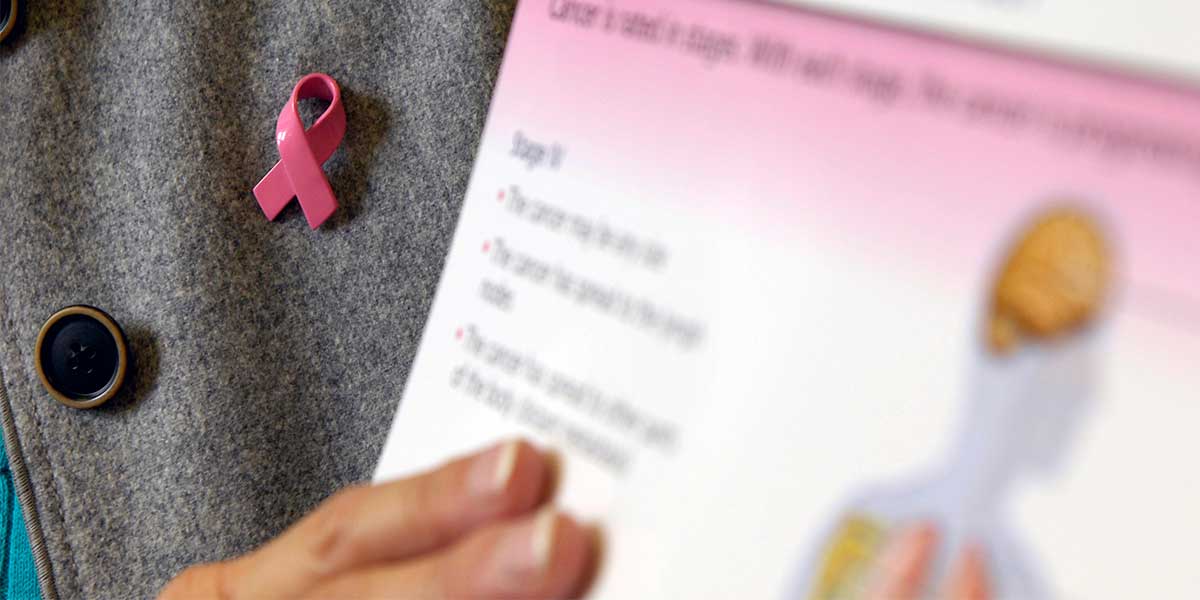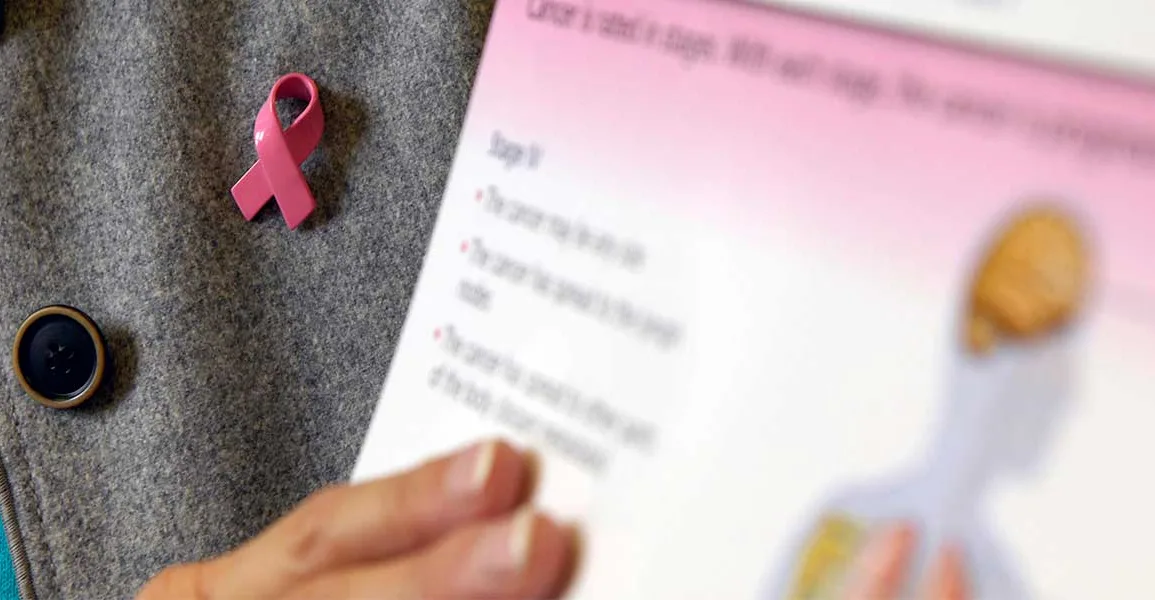
Posted on: October 10, 2023; Updated on: October 10, 2023
October is National Breast Cancer Awareness Month. Breast cancer is the second most
common cancer among American women, according to the Centers for Disease Control. The University of South Carolina has several faculty members who can offer expertise
on the subject.
To coordinate an interview, contact the staff members listed below.
Pharmaceutical research for breast cancer treatment
Eugenia Broude, an associate professor in the College of Pharmacy, studies the effects of anticancer
drugs on lab-grown mammalian cells to aid in discovery of new drug targets and improve
the efficacy of current cancer treatments. She can discuss breast cancer targeted
therapy and the effects of anticancer drugs.
News contact: Margaret Gregory, mar24@mailbox.sc.edu, 803-760-0255.
Karen Wickersham conducts research on drug therapies and managing side effects to improve quality of
life for people who have advanced cancers and patients who experience disparities
in cancer care because of factors such as race, age and rural location. Her goal is
to develop interventions to manage side effects, including tailoring drug interventions
by dose, duration and timing. Wickersham is an assistant professor in the College
of Nursing. She can discuss health disparities, access to breast cancer care, cancer
survivorship, symptom management and medication adherence.
News contact: Nicole Meares, nmeares@sc.edu, 803-777-9147.
Disparities in breast cancer prevention, screening, treatment
Swann Arp Adams, associate professor in the Arnold School of Public Health and the College of Nursing,
researches cancer health disparities in African Americans. She is available to discuss
her work on identifying gaps and promoting equity in cancer care for African American
women diagnosed with breast cancer.
News contact: Nicole Meares, nmeares@sc.edu, 803-777-9147
Tisha Felder conducts research on preventing and treating breast cancer in African American and
low-income women. With a five-year grant from the National Cancer Institute, she is
designing a program to improve breast cancer survivors’ experience with hormone therapy.
She recently was awarded a grant to lead a study that will evaluate breastfeeding
education and support for pregnant African American women. Breastfeeding reduces the
risk of developing aggressive breast cancer in women, yet African American women are
less likely to breastfeed. Felder is an associate professor in the College of Nursing
and the Arnold School of Public Health (Cancer Prevention and Control Program). She
can discuss health disparities, access to cancer care and cancer survivorship, breast
health and African American health.
News contact: Nicole Meares, nmeares@sc.edu, 803-777-9147.
Ana Lopez-DeFede is a social work professor and Associate Director of the Institute for Families in
Society at the University of South Carolina. She is a health policy and health services
researcher focused on increasing access to care, decreasing health care costs and
improving health outcomes. She is available to discuss health policies, Medicaid and
health equity, as they relate to breast cancer.
News contact: Victoria Montgomery, vmontgom@mailbox.sc.edu, 803-777-9462.
Jewel Scott, an assistant nursing professor, studies the impacts that health considerations have
on young Black women. Her research focuses on pregnancy complications, chronic stress
and depressive symptoms. She can discuss preventative care for reproductive-age women,
social determinants of health in SC and health equity for female minority populations.
News contact: Nicole Meares, nmeares@sc.edu, 803-777-9147.
Breast cancer rehabilitation
Shana Harrington, physical therapy program director and researcher in the Arnold School of Public
Health’s Department of Exercise Science, conducts research on impairments in upper
body range of motion, strength and function in women diagnosed with breast cancer.
These problems may be caused by the cancer itself or treatments related to breast
cancer such as surgery, radiation and chemotherapy. Harrington can discuss ways to
help prevent or minimize these impairments and how to create rehabilitation protocols
that may improve function and quality of life.
News contact: Erin Bluvas, bluvase@c.edu, 843-302-1681.
Why it matters
- Each year in the United States, about 240,000 women get breast cancer and 42,000 women
die from the disease. - Breast cancer accounts for about 30% of all new cancer cases in women each year in
the United States. - Approximately 15% of women who get breast cancer have a family member diagnosed with
it. - Breast cancer is the leading cause of cancer-related death in the United States for
Black and Hispanic women. - Most breast cancers are found in women who are 50 years old or older, but breast cancer
also affects younger women and men.
Source: breastcancer.org



